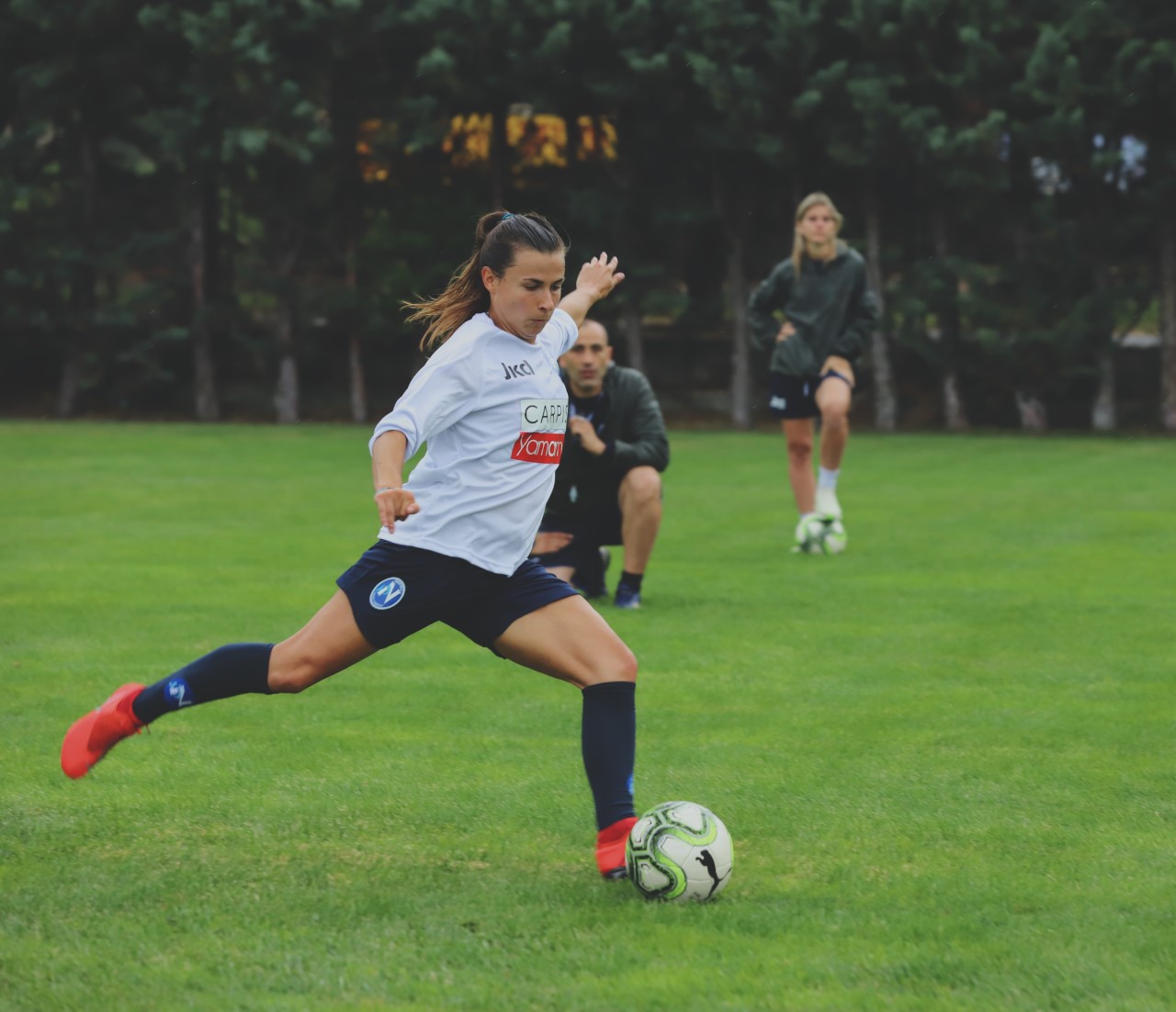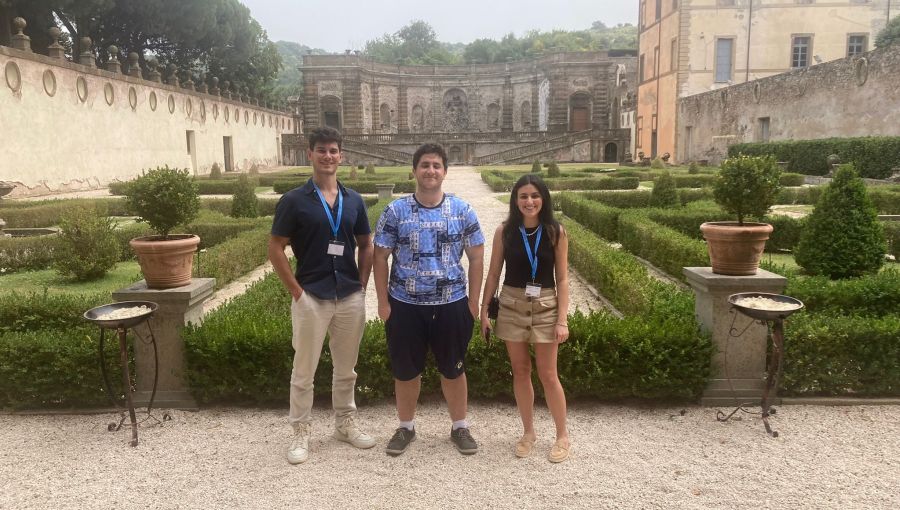Alumna Livia Capparelli Signs With Italian Major League Soccer Team
John Cabot University alumna Livia Capparelli was just recruited by Napoli Femminile, a Serie A (major league) women’s soccer team based in Naples, Italy. Born and raised in Rome with an American mother and Italian father, Livia graduated from JCU in 2019 with a double major in Economics and Finance and International Affairs. She has been playing soccer since she was six years old and she previously played for Roma Calcio Femminile and Ravenna Women. Her role is right full-back.
Congratulations on being recruited by Napoli Femminile!
Thank you so much! I am very excited about training with a Serie A team. Anyone who knows me knows how long I’ve been waiting for this opportunity. It’s incredible. I cannot wait for the season to begin on August 22nd, fingers crossed.

John Cabot University Alumna Livia Capparelli
How did you first become interested in soccer?
I actually wanted to be a gymnast when I was little. But I was very shy as a child, and performing by myself in front of people was too much for me, so I stopped. My mother was okay with that, but she insisted that I choose another sport. Since there was a local soccer team that practiced at a field across the street from my house, she suggested that I give it a try. I was resistant at first as I was the only girl and quite intimidated by all the boys. That’s when my father chimed in by pointing out that I could definitely run and jump just like the boys so I shouldn’t make a big deal about being the only girl. I slowly discovered it was really fun and I was good, so it came naturally to keep going, even as I grew up, to the point that I cannot live without it now.
What was it like playing a sport that is still not very common among females in Italy? Have things changed?
Soccer has always been considered a male sport in Italy but fortunately, things are changing. I never knew another girl who played soccer until I joined my first women’s team at age 14. I never actually had a role model since it was impossible to see women’s soccer on TV and I didn’t follow men’s soccer because I didn’t find it relatable at all. I loved the movie Bend it Like Beckham because apart from it being entirely about women and soccer, there is a 15-second clip that shows the NWSL (U.S. National Women’s Soccer League) and I thought they looked incredible. Mia Hamm was probably the only name I knew and I had a picture of her in my school notebook. I remember thinking that I wanted to be like her.
I endured years of pointing, of questions as to whether I belonged on the field, of stereotypes, of having to change in small bathrooms because the locker room was for the boys. There were virtually no girls’ teams when I was a kid and it was not easy feeling like the odd one out, but in the end, it was truly a character-building experience. For that, I am grateful to soccer and to my parents for pushing me when I wasn’t old enough to understand why it was wrong for me to think that I couldn’t play. Today more and more little girls are playing soccer and have role models to whom they can aspire, other women athletes and soccer players who have paved the way for them. It makes me really happy to know that I witnessed that change.
In the U.S. lots of kids play soccer but it is not a popular spectator sport at the professional level. How do you explain this?
I think it’s because the U.S. has many sports to focus on, especially baseball, basketball, and football. All of these sports have a high level of excitement with many points being scored during each game. I think you need more patience to appreciate soccer, there are usually just a few goals per game, which may seem boring to some. But, mostly it’s just a cultural phenomenon. Italy eats and breathes soccer, as do most other European countries, so you grow up with it and you learn to understand and appreciate it.
What was it like to study Economics and Finance and International Affairs at JCU? How did you manage to complete a double major while playing professional soccer?
I am very pleased with my choice of majors. Economics and Finance taught me to value numbers and theories and International Affairs pushed me to put people into the picture and to consider the world under a variety of different perspectives. I met some of the most inspiring people at JCU, professors and students alike, and for that, I will be forever grateful.
Studying and playing professionally was challenging at times, but I never wished it to be otherwise. You learn to manage your time. If you only have two hours before practice to do school work, that’s it, you sit down and do it. If you have work left to do, you wake up early and do it. There’s not much to it. Sometimes I would study on planes, trains, and buses with my headphones on with my teammates around me singing and enjoying the victory, but I was never the only one, so that made it easier. I think I am lucky because I really enjoy studying as well as training, which means that it doesn’t really strike me as a sacrifice because I love doing both. And I think studying so much made me a better player as much as playing soccer made me a better student.
How do you see your future?
I would eventually like to do research or work in the area of international or regional development. For now, however, I want to see how far I can go with soccer. I graduated from JCU in December 2019 and I got into a number of really good graduate schools in London and Amsterdam. But then I got the offer to join a team in Serie A and I just couldn’t leave Italy without giving it a shot, since It’s been my goal since I found out that a women’s major league even existed. Still, I don’t see my future in the sports world. My career ambitions lay elsewhere. In any case, all I know right now is that I don’t want to have any regrets, which is why I deferred my admissions and am now in Naples, giving it my best.





